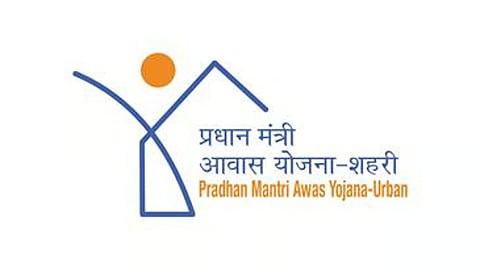

CHANDIGARH: Municipal Corporations of Lucknow, Pune and Indore were recognised among the best-performing urban local bodies during the first national conference of urban local body chairpersons held in Manesar, Haryana.
Addressing public representatives from across the country after inaugurating the first-ever two-day National Conference on ‘Strengthening Constitutional Democracy and the Role of Urban Local Bodies in Nation Building’, held at the ICAT-2 Campus Auditorium in Manesar, Lok Sabha Speaker Om Birla said that elected representatives of urban local bodies must fulfil their responsibilities with a clear focus on the vision of Developed India 2047, adopting innovative approaches, strong leadership, and practical skills.
He urged all representatives to take a pledge: “My corporation, my council, my municipality, and my city should be counted among the cleanest and most beautiful cities in the world.”
Birla added that if urban local body representatives step forward with a positive attitude, they can undoubtedly bring dynamic and energetic changes to urban areas. He noted that urban local bodies, as the smallest units of the nation, are now playing a strong and vital role in steering the country in a new direction. The gathering, he said, aimed to explore ways to strengthen India’s democratic institutions for a brighter future.
Haryana Chief Minister Nayab Singh Saini urged all public representatives to commit themselves to realising Prime Minister Modi’s vision of a developed India by 2047.
He called upon them to carry the spirit of this resolution, taken from the soil of Haryana, to their respective municipal bodies and share it with the people in their constituencies during House meetings.
Saini described urban local bodies as foundational institutions, “the first school and nursery” of democracy. “The deeper the roots of democracy at the local level, the stronger our nation becomes,” he remarked.
He said that when modern infrastructure delivers quality services to citizens, people feel confident that they have entrusted their local governance to capable hands. “A developed India and a developed Haryana can only be achieved through developed cities.”
Saini noted that Cyber City Gurugram is a model of urban development. Additionally, five ultra-modern cities are being developed under the Panch Gram Yojana along the 180-km-long KMP corridor. The plan has been designed to accommodate a population of 75 lakh by the year 2050.
Emphasising the importance of strengthening and ensuring transparency in urban local bodies, Saini said Haryana is rapidly adopting e-governance to achieve this goal.
Every municipal corporation in the state now operates through digital portals, and emerging technologies such as Artificial Intelligence (AI) are being utilised to address citizens’ concerns efficiently.
He said property tax, electricity billing, and solid waste management are being prioritised to enhance urban service delivery. Every municipal body in the state will be required to prepare and implement a Green Action Plan.
At the event, public representatives and administrative officers from these cities shared their best practices with counterparts from other states, fostering a collaborative exchange of innovative urban development strategies.
Lucknow highlighted initiatives such as the use of e-vehicles for waste collection instead of diesel or petrol-powered vehicles, the establishment of high-capacity waste processing plants, and the transformation of dumping sites into national inspiration points.
Pune showcased its ward-wise waste collection systems, electricity generation through biogas plants, and integrated waste management techniques.
Indore presented successful models involving GPS-enabled garbage collection vehicles, the 'Safai Mitra' workforce, and active public participation in maintaining cleanliness.
Lucknow Mayor Sushma Kharkwal said that the foundation of a developed India by 2047 rests on strong and efficient urban local bodies, where capable leadership and active citizen participation play a pivotal role. She said that despite a population of nearly 50 lakh, Lucknow has emerged as a zero-waste city.
The city has also developed urban forests using the Miyawaki method and deployed mechanical sweepers to clean roads. To boost eco-tourism, attractions like the Mango Museum Park and nature trails are being created. Additionally, over 20,000 trees have been planted along the Kuret River as part of the national campaign Ek Ped Maa Ke Naam.
Pune Municipal Commissioner Puneet Raj and ward councillors presented impactful examples of waste collection and electricity generation from ward-level biogas plants. They also highlighted successful initiatives such as slum redevelopment projects, transformed into permanent housing following necessary policy amendments, and the adoption of the Light House Project under the Public-Private Partnership (PPP) model.
A standout example of sustainable development is Pune’s “tree ambulance” service and its dedicated call centre for urban greenery maintenance. Additionally, the city has introduced smart water meters and launched the Swachh Cooperative initiative for effective solid waste management.
During a key session of the two-day national conference, Indore Mayor Pushyamitra Bhargava and Commissioner Shivam Verma’s team shared the fundamental approach that has helped Indore retain its title as India's cleanest city.
Addressing municipal representatives from across the country, they emphasised that cleanliness in Indore is not just a civic duty—it is a collective cultural mindset.
Indore, which comprises 85 municipal wards, has successfully instilled a strong sense of ownership among its citizens towards keeping their homes, neighbourhoods, streets, and public spaces clean. This citizen-driven model is complemented by the dedication of Safai Mitras, who begin their duties every day at 6 a.m.
The city’s sanitation operations are monitored by the local administration. Each waste collection vehicle is GPS-enabled, and delays as short as 10 minutes trigger immediate accountability measures for the driver concerned.
This disciplined approach has allegedly resulted in the imposition of over ₹1.5 crore in fines within a single year against those violating cleanliness norms.
As part of the city’s digital transformation, unique ID numbers and QR codes are being affixed to homes. Residents can scan these codes to access municipal services and receive important civic information.